In physical and mental health care, and in life, nonbinary people experience more challenges, which can make them feel despondent and worthless. But despite backlash from those who want to erase them (or try and fail to, because their identity is no one but theirs to decide), they see hope in growing understanding, especially among Generation Z.
By Erin Beck, Writing for the “When All Are Counted” Project
When moving from Washington, D.C. to the mountains of West Virginia, Lyz Frey expected to find people who were “beautifully eccentric.” But in interviews over several weeks, nonbinary young adults in the state have said West Virginia is often an unwelcoming place.
“For so many of us, hope is the only thing that nourishes us,” Lyz, 37, said. “When there is a famine of compassion, it is that hope of a better future that keeps us fed. But we can’t sustain on hope alone.”
Lyz, a trans nonbinary bisexual queer person who uses they/them pronouns, said gender-nonconforming people like them live on “an island of misfit toys.”
“We exist on the fringes of society,” they said, “where we have clandestine Facebook groups that you have to know somebody to get into.”
Nonbinary people may identify as being both a man and a woman, somewhere in between, or as completely outside of these categories. According to a 2022 Pew Research Center survey, 1.6% of U.S. adults are transgender or nonbinary. Adults under 30 are more likely than older adults to be trans or nonbinary, according to the Pew Research Center survey. About 5% of adults younger than 30 are trans or nonbinary, including 3.0% who are nonbinary.
Researchers with the Think Kids “When All Are Counted” Project have been conducting focus groups with three groups more likely to experience struggles with health care: the Black community, the LGBTQ+ community, and people with disabilities. LGBTQ+ focus group participants reported a lack of support in their geographical community and in the medical community, including trouble finding LGBTQ+ friendly medical providers.
“Without violating HIPAA, I personally have been witness to, in my local rural critical access hospital, disparaging remarks by staff members about queer and trans people within earshot,” Lyz, a registered nurse, said. “And so do you think that those people are ever going to go back to that hospital to receive care? Of course not.”
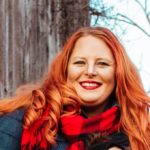 Lyz also described first-hand experience of their own struggles with care during pregnancy. The entire experience was traumatic. Healthcare providers routinely misgendered them, even in the birthing suite. They said being misgendered (meaning calling someone who is nonbinary “he” or “a woman,” for example) is dehumanizing.
Lyz also described first-hand experience of their own struggles with care during pregnancy. The entire experience was traumatic. Healthcare providers routinely misgendered them, even in the birthing suite. They said being misgendered (meaning calling someone who is nonbinary “he” or “a woman,” for example) is dehumanizing.
“And so when we can’t even get off that basic playing field (of using correct pronouns), how do you trust that the rest of your care will be what you want and what you consent to?” Lyz said.
They wanted to permit a doula in the room, and as someone who was sexually assaulted, it was important to them to have as few pelvic exams as possible. But those directives weren’t followed.
Lyz fits in two of the “When All Are Counted” focus group categories, since they also have autism and ADHD, as well as depression and anxiety. Focus group participants have described being unable to find mental health care, whether that’s due to no mental health professionals in rural areas, or none who are competent at assisting them.
 While trying out therapists, Lyz noticed when the therapist was experiencing discomfort, and they misgendered them too.
While trying out therapists, Lyz noticed when the therapist was experiencing discomfort, and they misgendered them too.
“I have to leave the state to see my own therapist,” they said. “I have to go to Virginia.”
An herbalist as well as a community organizer, Lyz said it took time, but now queer people in Hampshire County know they can turn to Lyz for help. But they added that many end up depriving themselves of mental health care. They noted the mental healthcare system is already underfunded and understaffed. And if a provider misgenders or judges patients, mental health care becomes farther out of reach.
“Often there’s this mentality of, ‘well, somebody else needs it more than me’ or ‘I’m not worth it,’ which is really hard for a lot of people, having that deep-seated feeling of worthlessness, because that’s what society tells you, all your elected officials tell you, that’s what you are. That really strips people of their very humanity.”
A bill to ban gender-affirming surgery and hormone treatment is currently moving through the West Virginia Legislature.
This is nothing short of #genocide of #transgender and #intersex youth in our state. Our legislative body has put #dogma before #science and fact when legislating a solution to a non-existent problem while also making bad law for the intersex community. #LGBTQIA #FolkReporter 4/
— Lyz ©️ 🧙♀️🌿 (@LyzSays) January 13, 2023
Lyz makes a lot of referrals to Internet-based telehealth mental health care. But those programs are costly. And they noted that when people turn to the Internet in search of counseling, they find pastors listed who attempt to convince them their gender identity is sinful, under the guise of “spiritual counseling” and without disclosing they aren’t licensed providers. According to the American Psychological Association, those efforts “are forms of discrimination, stigma, and victimization,” and instead of helping mental health, they result in psychological distress.
Lyz noted that a variety of stressors, such as poverty or discrimination in employment and health care, can “compound,” affecting a person’s mental and physical health.
“An anthill is now a mountain for a lot of people,” they said.
Growing up in a conservative, religious family in Michigan, Lyz was drawn to rhetoric about freedom in the Republican party. But they don’t see that value demonstrated now.
“I joke with people that my political ideology is that two gay dudes should be able to get married and protect their pot farm with a semi-automatic rifle,” they said.
When doctors don’t devote time at appointments, patients lose time living well
During the focus groups for people with disabilities, one persistent theme was being unable to find health care of all kinds, including doctors who take time to listen to them. Lee S. found better care in Pennsylvania.
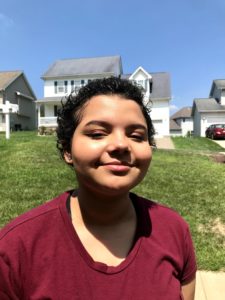 A biracial, nonbinary person who is attracted to women, they were diagnosed with hypermobile spectrum disorder, a connective tissue disorder characterized by joint instability and chronic pain; postural orthostatic tachycardia syndrome (POTS), a blood circulation disorder; and irritable bowel syndrome at 17, but only after moving to western Pennsylvania.
A biracial, nonbinary person who is attracted to women, they were diagnosed with hypermobile spectrum disorder, a connective tissue disorder characterized by joint instability and chronic pain; postural orthostatic tachycardia syndrome (POTS), a blood circulation disorder; and irritable bowel syndrome at 17, but only after moving to western Pennsylvania.
They also have major depressive disorder, ADHD and generalized anxiety disorder. Due to anxiety, they asked to share their story and answers questions in writing, instead of through a verbal interview.
They started seeing doctors for their symptoms at 16 in Morgantown. A rheumatologist diagnosed them with fibromyalgia and told them to “work through the pain” with high-intensity physical therapy. After about eight months, they could barely walk and the pain never ceased, even though they took gabapentin and NSAIDs.
“All the pain clinic doctor told me was to exercise more,” they said. “I became extremely depressed at that time and couldn’t leave my house because of my inability to walk much. Because of this I had to switch to online school and my social life became nonexistent.”
In Pennsylvania, they found a rheumatologist who diagnosed them accurately and suggested mild physical therapy, although they still struggle with finding physical therapists experienced with their conditions.
They said the number of pediatric specialists is much lower than the number of those who work with adults, and they also wondered if their race was a factor.
“I can't say 100% if my poor treatment was because of my race, but I've had doctors completely ignore me and only speak to my white mom, or severely underestimate the pain I experienced (which is a common experience among black patients),” Lee said.
This project aims to illustrate problems resulting from a healthcare system only focused on majority groups and the most likely conditions.
“It took me over a year to get diagnosed since my first rheumatologist appointment because they didn’t think to evaluate me for the least common condition that I had symptoms for,” Lee said.
Lack of “nonbinary” language and the search for self
Interviewees who still live here reported searching for more friendly places to live where they’d be less isolated and better understood. Josiah S., 21, identifies as nonbinary and is interested in men.
“I don’t really care what people call me because I just see me as me,” they said.
A peace-loving person who aims to see the good in life, Josiah lives in Oak Hill. They try to keep conversations positive and stress-free.
“We’re already separated, political wise,” they said.
The first round of focus groups also found that many people in the LGBTQ+ community, too, are divided. Some groups, including people who aren’t cisgender, are more likely to be left out or misunderstood. People who are cisgender (male or female) have gender identities that correspond with their sex registered at birth.
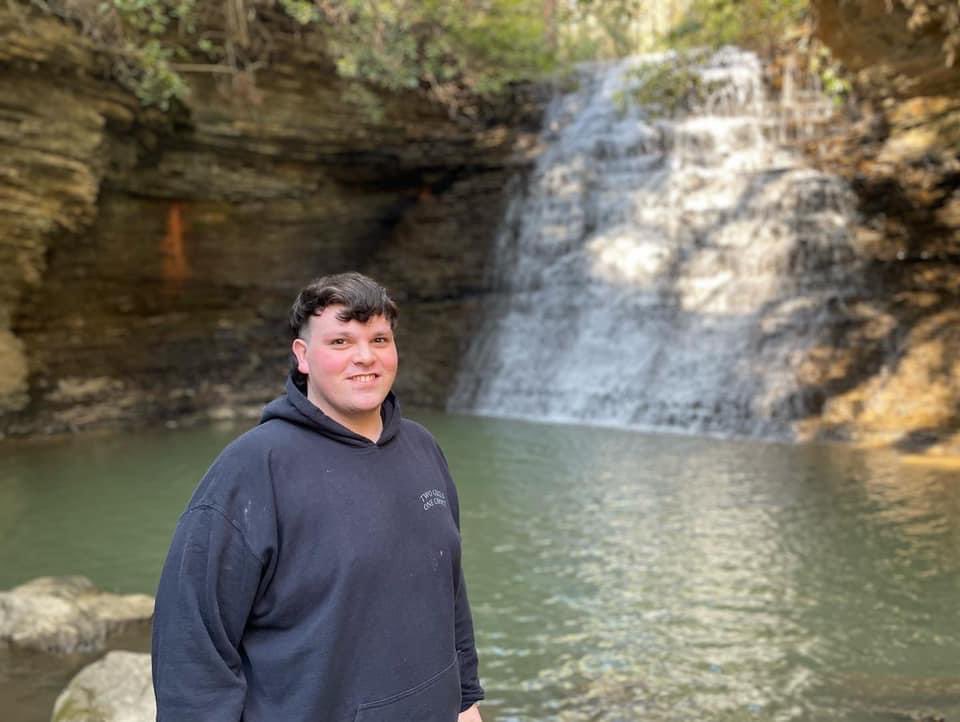
A year or so ago, Josiah realized they didn’t feel like a male. They were raised in a Christian family that believes their gender expression is wrong, but has a sister they trust who is in the LGBTQ+ community. For Josiah, the word “nonbinary” was not in their vocabulary, so they asked their sister about people who are transgender.
“She basically said you would know,” they said.
They also searched online for an explanation of their feelings, because they didn’t feel comfortable talking to many people they knew. Some people still don’t know Josiah’s gender identity is nonbinary. Josiah also tries not to talk about it.
They found support through a Facebook group of other nonbinary people.
“They didn’t feel more of one part. They kind of felt like they can be both, like they don’t have to identify as one or the other.”
“I realized that I didn't really feel male. And I didn't feel female either. I kind of felt like I had like, a little bit of both in me like I can feel masc and feminine too.”
Josiah S.
While there are inclusive spaces online, in-person support is important. But focus groups found that some LGBTQ+ people worry they’ll be targeted at in-person, queer community events.
Josiah also experiences anxiety and depression. They acknowledged the interview itself made them nervous.
But it wasn’t that the depression came from being nonbinary. It came from fear– the basis of anxiety — that others wouldn’t accept them for who they are. For Josiah, living in a small town can be worrying because they don’t know how people will react to them.
But despite the pain they’ve felt, they do envision a future. Once they save enough money, they’d like to explore and move somewhere warmer and more open-minded.
They’re working retail while they figure out what kind of job they’d like to do long-term, but they already know they’d find purpose and meaning in helping people. When a friend is discouraged, they’re the one to reach out and say, “Don’t let the haters get you.”
They believe that instinct comes in part from knowing what it feels like to be deeply hurt. They’ve thought about being a therapist but worry they may be too sensitive for sad topics, and they think getting teary-eyed might cause harm to the patient. But they also know their soft heart is a positive trait.
“Crying doesn’t make you weak,” they said. “It sometimes proves that you’re strong too. Because having emotions and feelings and just showing that you care about people and just having love is strong.”
Josiah S.
They know there are still good people out there. “If you don’t have access to a therapist or counselor or you just don’t trust in a therapist or counselor, there’s always someone that you do trust that you can talk to,” they said.
But they also think a support group in high school would have helped, and they would have appreciated adult role models they could relate to on a deeper level.
If the state prioritized meeting the needs of the queer community in West Virginia, maybe Josiah wouldn’t have had to do so much online searching. LGBTQ+ youth who live in a community that is accepting of queer people reported significantly lower rates of attempting suicide compared to those who do not. And transgender and nonbinary youth attempt suicide less when their pronouns are respected and when they have access to spaces at school, home and online that are supportive of their gender identity, according to a 2022 Trevor Project peer-reviewed study.
The “death burst” and the hope of young people
Jordan Pierson, of Glenville, has been subject to the division in the queer community described by focus group participants. As someone who identifies as nonbinary, and is also bisexual, they have heard gay men say things like, “Oh yeah, I thought I was bi once too and it’s sort of like a snide thing to be like ‘oh that’s not real.’”
 In recent years, they realized they might not be a cisgender person, but didn’t know about the nonbinary identity. So first, they thought they were transgender. As they learned more, the term “gender-fluid” resonated.
In recent years, they realized they might not be a cisgender person, but didn’t know about the nonbinary identity. So first, they thought they were transgender. As they learned more, the term “gender-fluid” resonated.
To them, the nonbinary identity feels like “a cop out,” but that isn’t the case for others, they noted. “It is also one of the two where you don’t feel any sort of pressure to physically transition,” they said. They see gender as a spectrum.
“Figuring yourself out isn’t easy. And it’s not only common and normal to land on the wrong thing every now and again, it’s part of the process,” they said.
Once they attend graduate school, they plan to come out as a transgender woman and use she/her pronouns.
“But at the moment it’s far safer for me for people in my circle to see me as a they/them and for people outside my circle just to call me a man,” they said.
Having no one to talk to about it who understood was isolating. They had to drop out of university in 2017, and the five years following before finishing their degree in 2022 were some of the most depressed of their life.
Upon their return to school, they did go visit the university counselor, in particular to address experiences with sexual violence.
“My past with encountering sexual violence has nothing to do with my sexuality and everything to do with my upbringing, but the idea that I’m more susceptible to it and potently aware of the risk of it, is heavily due to sexuality,” they said.
that autism overlaps a lot with gender variance is just one of the most salient markers of how systems thinkers will challenge the arbitrariness of a system and find ways to break and expand it
— S. Qiouyi Lu 🏜️🎑🐇 陸秋逸 Lù Qiūyì (@sqiouyilu) February 6, 2023
Jordan, who is also on the autism spectrum, explained that violence targeted at the LGBTQ+ community is yet another example of living in a systematically patriarchal society.
“Rates of violence of all kinds are exacerbated by trans and nonbinary identity, and sexual violence mostly targets women and femme presenting people,” they said.
Recently, Jordan found a list online of signs a person is about to kill themselves.
“And I realized it was just everything that I was feeling for those five years,” they said.
But they couldn’t find a counselor to help until they went back to school. Their cat probably kept them alive.
“My cat’s really clingy and she probably wouldn’t have handled it well,” they said.
They’d been known as someone who jokes and lets problems roll off their back. But since they’d known the university counselor from before the five-year break, therapy felt like peeling off the facade.
If accepted, they plan to attend graduate school out of state, although they laughed that one of the most likely chances is a school in Alabama, “the exact same state in a different font.”
Still, Jordan sees bigotry toward the queer community as experiencing a “death burst.”
The UCLA Williams Institute reports that “based on our estimates from 2016-2017 and (a 2022 study), “we find that the percentage and number of adults who identify as transgender has remained steady over time.”
Gender non-conforming people have existed throughout history, and they aren’t going away.
“We are absolutely trending upward… Something that’s dying out, and knows it’s dying out, is going to push back really hard when it’s on the verge of collapse,” Jordan said.
Although, they added they’d like to see more people put forward the effort to learn and work together.
“Coming from a family with coal miners in it, solidarity is the thing that got the coal miners out of the mine towns,” they said. “If I’m not going to the Black Lives Matter protest, I can’t expect BIPOC people who are not already a member of my community…. I can’t expect them to come and back me up if I’m not going to back them up. So that’s what I’d like to see is intersectionality among all people who are being marginalized, including those of us who may be straight and may be white but you’re still poor and you live in West Virginia and you’re still being oppressed.”
Generation Z gives Jordan, a millennial, hope. Young adults are far more likely to be familiar with the terms “nonbinary” or “gender fluid.” About four in ten adults younger than 30 (42%) say they have heard a lot about being nonbinary, compared with 31% of those 30 to 49, 20% of those 50 to 64 and 12% of those 65 and older, according to the Pew Research Center survey.
“It’s the fact that you go back to university and all the language that you’ve learned to try to understand yourself and your situation, you go back and it feels like everyone is equipped with that,” Jordan said.
The mental health struggles that increase the risk of suicide are treatable, and help is available. The 988 Suicide and Crisis Lifeline is a hotline for individuals in crisis or for those looking to help someone else. To speak with a trained listener, call 988.
Resources:
Frequently asked questions about gender identity, including transgender and nonbinary identity, and how to support nonbinary and trans people, from the Human Rights Campaign.
A majority of nonbinary people were hit, beaten, physically attacked, or sexually assaulted (55%) at some point since they were 18 years old, according to surveys reviewed by the UCLA School of Law Williams Institute.
According to the Pew Research Center, while Americans have complex views on gender identity, nearly half of adults (47%) say it’s extremely or very important that if a person who transitions to a gender that’s different from their sex assigned at birth changes their name, others refer to them by their new name. An additional 22% say this is somewhat important.
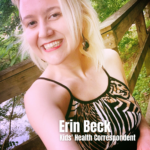 Erin Beck is a guest correspondent and writes for the “When All Are Counted” project. You can follow her on Facebook and Twitter.
Erin Beck is a guest correspondent and writes for the “When All Are Counted” project. You can follow her on Facebook and Twitter. 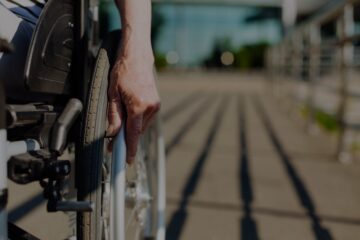
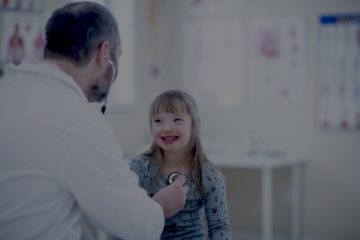

0 Comments